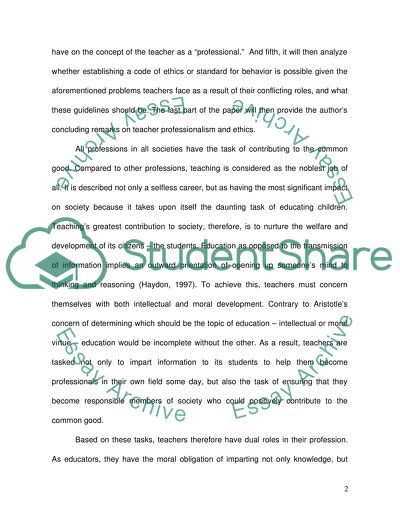Cite this document
(“Ethics and Professionalism in Teaching Research Paper”, n.d.)
Ethics and Professionalism in Teaching Research Paper. Retrieved from https://studentshare.org/education/1534939-ethics-and-professionalism-in-teaching
Ethics and Professionalism in Teaching Research Paper. Retrieved from https://studentshare.org/education/1534939-ethics-and-professionalism-in-teaching
(Ethics and Professionalism in Teaching Research Paper)
Ethics and Professionalism in Teaching Research Paper. https://studentshare.org/education/1534939-ethics-and-professionalism-in-teaching.
Ethics and Professionalism in Teaching Research Paper. https://studentshare.org/education/1534939-ethics-and-professionalism-in-teaching.
“Ethics and Professionalism in Teaching Research Paper”, n.d. https://studentshare.org/education/1534939-ethics-and-professionalism-in-teaching.


